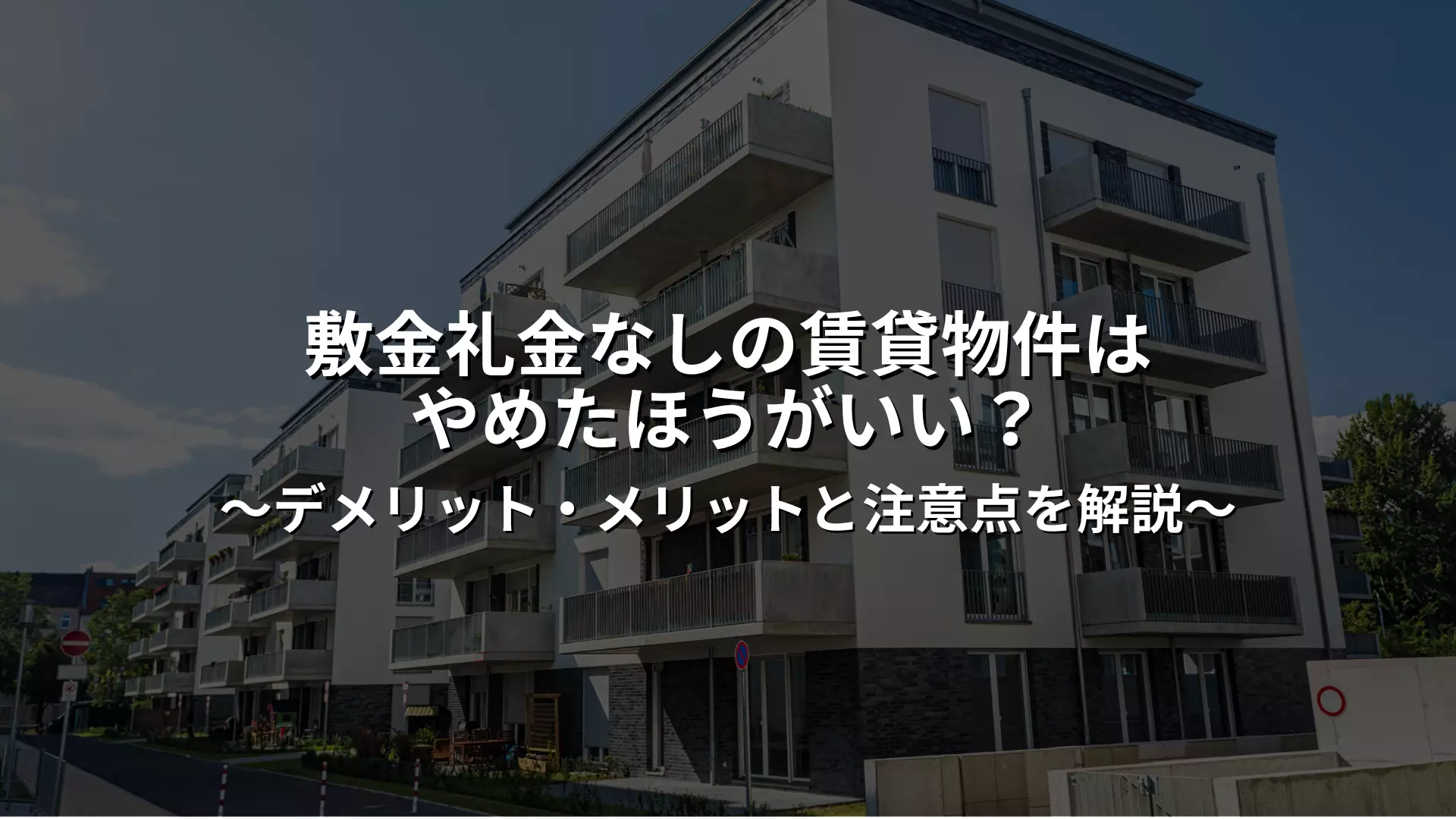What is the average electricity bill for a college student living alone?
When university students start living alone, electricity bills are a concern along with rent and food costs. Electricity bills vary greatly depending on lifestyle, region, and season, so it's important to know the average amount.
Below, we will explain in detail the average monthly electricity bill for university students living alone, seasonal guidelines, and how it differs from the national average.
Average monthly electricity bill for university students
The average monthly electricity bill for a university student living alone is estimated to be around 4,000 to 6,000 yen. This will vary depending on whether you cook at home, how much time you spend at home, and how you use your appliances, but most university students tend to stay within this range. In particular, electricity bills can vary depending on how you use your appliances and the number of amperes you have contracted.
For example, electricity bills tend to increase if you take online classes or spend a lot of time at home. Conversely, people who spend a lot of time outside at university or part-time work tend to have relatively lower bills. The first step to saving money or reviewing your electricity bills is to check whether your bills are higher or lower than average, taking into account your lifestyle.
Estimated electricity bills for each season (summer, winter, spring and autumn)
Electricity bills vary greatly depending on the season, and tend to be particularly high in summer and winter.
In the summer, air conditioning use increases, so monthly average bills can be as high as 5,000 to 7,000 yen. In the winter, with the use of heaters, electric stoves, and kotatsu, bills can often reach 6,000 to 8,000 yen. On the other hand, in the spring and fall, when heating and cooling are hardly used, bills tend to be kept down to around 4,000 yen.
In other words, fluctuations in electricity bills are greatly influenced by the frequency of use of heating and cooling appliances such as air conditioners. By knowing the seasonal guidelines, you can plan your utility bills in advance and use this information to help manage your household finances.
National average and characteristics of the university generation
According to the Ministry of Internal Affairs and Communications' household survey, the average electricity bill for a single person is around 6,000 yen per month, but for university students it is slightly lower at around 4,000 to 5,000 yen. This is because students tend to spend less time at home than working adults and often live in small apartments such as studios or 1K apartments, which means that heating and cooling are more efficient.
However, with the recent spread of online classes and working from home, many students are spending more time at home, and in some cases their electricity bills are higher than average. Comparing your electricity bill to the national average and asking yourself "why is my bill higher or lower?" can lead to hints on how to save money.
[By region] Comparison of electricity bills for university students living alone
Electricity bills vary greatly depending on the region you live in. Heating costs are higher in cold regions, and electricity rates themselves can be high in urban areas. When university students start living alone, it's a good idea to know the approximate electricity costs for each region, not just the national average.
Here we will introduce the characteristics and average prices by area.
Average electricity bill in Hokkaido and Tohoku areas
The average monthly electricity bill for university students living alone in Hokkaido and Tohoku is around 6,000 yen, which is relatively high compared to the rest of the country. In particular, electricity is used heavily for heating in the winter, so it is not uncommon for bills to exceed 8,000 yen from January to March.
Although homes designed for cold climates are highly insulated, the use of heating equipment is unavoidable, making this an area where electricity bills tend to rise nationwide. Conversely, people tend not to use air conditioning much in the summer, which keeps costs down relatively. If you plan to live in a cold climate, it is important to plan your household budget taking into account seasonal fluctuations in electricity bills.
Average electricity bill in the Kanto area
The average monthly electricity bill for a university student living alone in the Kanto area is around 4,500 to 5,000 yen. This is a relatively low level nationwide, as the temperature difference between summer and winter is milder than in other regions. However, electricity rates are somewhat higher within Tokyo's 23 wards, and many students' bills can rise to around 5,500 yen, especially in the summer, when they use air conditioning.
This can be kept low if you are out and about a lot for university or part-time work, but if you are taking remote classes or spending a lot of time at home, your electricity consumption may exceed the average. It is important to be aware of the high electricity prices that are unique to urban areas and the impact of your lifestyle.
Average electricity bill in the Hokuriku and Tokai areas
The average monthly rent for a university student living alone in the Hokuriku and Tokai areas is around 5,500 to 6,000 yen. Hokuriku experiences heavy snowfall and cold winters, which means increased heating use and higher electricity bills. On the other hand, the Tokai region has many relatively warm areas, but the summers are often extremely hot, leading to frequent air conditioning use, making electricity bills unstable throughout the year.
In particular, electricity bills in the Nagoya area are prone to rise due to the addition of electricity unit prices in urban areas. It is necessary to take measures to reduce electricity bills based on the climate and lifestyle of each region.
Average electricity bill in the Kinki area
The average monthly electricity bill for a university student living alone in the Kinki area is around 5,000 to 5,200 yen. Kansai's summers are extremely humid, so electricity bills tend to increase due to the use of air conditioners, but winters are relatively warm, so heating costs tend to be kept down. In particular, in urban areas such as Osaka and Kyoto, lifestyles are diverse and electricity usage can vary widely.
In addition, Kansai Electric Power's electricity rates are said to be slightly lower than those of other regions, which means that electricity bills are generally stable.
Average electricity bill in the Chugoku and Shikoku areas
The average monthly electricity bill for a university student living alone in the Chugoku and Shikoku areas is around 5,500 to 5,700 yen. The climate is relatively warm, but winters are severe in mountainous areas, and electricity bills can rise due to heating usage. Summer is hot and humid, and air conditioning is used for a long period of time, so electricity bills tend to be slightly higher than the national average.
Another feature is that electricity bills vary greatly depending on the region, as power company pricing plans differ. College students can expect to reduce their electricity bills by reviewing their contract plans.
Average electricity bill in the Kyushu and Okinawa area
The average monthly electricity bill for a university student living alone in the Kyushu and Okinawa areas is around 5,200 to 5,300 yen. While Kyushu has relatively warm winters and keeps heating costs down, summers are often extremely hot, making air conditioning a major burden. In Okinawa in particular, air conditioning is essential throughout the year, and there are cases where air conditioning is used not only in the summer but also in the spring and fall, which can result in high electricity bills.
However, overall utility costs tend to be lower than in other regions, and with some ingenuity it is possible to bring your electricity costs closer to the average. It is important to take measures to reduce your electricity bills that are appropriate for the climate.
Search for a room
Only furnished properties with appliances are listed!
Reasons why college students living alone pay high electricity bills
There are several common reasons why university students living alone feel their electricity bills are high. The combination of electricity rate increases, the use of old appliances, mismatched contract terms, and small everyday wasteful spending can often result in bills that far exceed the average.
Here are some reasons why your electricity bills are rising.

Impact of electricity price hikes
In recent years, rising electricity bills have become a major factor in putting pressure on the cost of living for university students. Due to rising fuel costs and price hikes by power companies, there are an increasing number of cases where bills are higher than usual for the same amount of usage.
In particular, starting in 2023, major electric power companies will revise their basic and metered charges, and even single-person households may see their electricity bills increase by more than 1,000 yen. College students, with their limited incomes, are particularly susceptible to this impact.
It is important to understand that your electricity bill may be increasing not because of excessive use but because of rising unit prices, and to be mindful of reviewing your contract plan and saving energy.
Using old or high-power appliances
One of the reasons for high electricity bills is the use of old or energy-inefficient appliances. Refrigerators and air conditioners that are more than 10 years old in particular consume a lot of electricity due to their low energy-saving performance, and can cost several thousand yen a month more than the latest energy-efficient appliances.
You should also be careful of old appliances installed in low-rent properties. College students often use second-hand appliances due to moving and initial costs, which can result in higher electricity bills. Even if it costs a little more, replacing your appliances with energy-efficient ones can lead to significant savings in the long run.
A contract plan that doesn't suit your lifestyle
Another reason for high electricity bills is that you are using an electricity plan that does not suit your lifestyle. For example, if you are out most of the time during the day but have a plan that charges high daytime electricity, you will end up paying unnecessary fees.
Additionally, if you set the amperage higher than necessary, you will be charged an extra basic fee. Many college students do not review their contracts when they move out of their parents' homes, and are often losing money without realizing it. By changing your electricity rate plan to suit your lifestyle, you can reduce unnecessary costs.
You are using electricity wastefully
Small everyday habits can lead to wasted electricity bills.
There are three main types that are representative.
- Leaving the air conditioner on
- Standby power of unused home appliances
- Turning on lights more than necessary
Standby power consumption, in particular, is said to account for 5-10% of a household's total electricity bill, which can be a surprisingly large burden. University students should also be aware that they tend to use electricity for longer periods of time due to staying up late and spending more time at home. Making everyday improvements to your awareness, such as turning off appliances frequently using power strips and adjusting air conditioner temperature settings, can help you save on your electricity bill.
How to save on electricity bills as a college student living alone
Electricity bills can be significantly reduced with a little ingenuity. University students living alone tend to have irregular lifestyles, but with a little awareness and ingenuity in equipment, it is possible to save thousands of yen each month.
Here we will explain effective methods, from small, everyday energy saving measures to reviewing your home appliances and contract terms.
Be mindful of small energy-saving measures
Small everyday habits can make a big difference in saving money on your electricity bill.
for example,
- Turn off the lights when you leave the room
- Unplug unused appliances
- Do not leave the charger plugged in
Just these basic actions can save you thousands of yen a year. Also, keeping your air conditioner set to around 28°C in the summer and 20°C in the winter can help prevent excessive consumption. College students tend to use more electricity because they stay up late and spend more time at home, so it's important to consciously reconsider how you use electricity.
By being strict about turning off electricity frequently, you can easily reduce your electricity bill.
Switch to energy-efficient appliances
Older home appliances tend to be less energy efficient, resulting in higher electricity bills. Refrigerators, air conditioners, and washing machines consume a lot of power, so simply replacing them with newer, more energy-efficient appliances can reduce your monthly electricity bill by several hundred to several thousand yen. While the initial investment can be a burden for university students, there are also ways to purchase used or leased appliances.
It is also efficient to choose products based on the number of stars on the energy-saving label. In the long run, the cost of purchasing home appliances can be recovered through reduced utility bills, so the savings are very significant.
Use heat-blocking and light-blocking curtains
Installing heat-blocking and light-blocking curtains is an effective way to increase the efficiency of your heating and cooling system. In the summer, blocking direct sunlight prevents the room temperature from rising, reducing the frequency of air conditioning use. In the winter, blocking cold air from outside improves the efficiency of your heating, leading to reduced electricity bills.
Especially for university students living in compact studio or one-room apartments, clever use of curtains is key to achieving both comfort and savings. Even greater benefits can be expected if you use low-cost items such as thermal insulation sheets and gap tape in addition to curtains.
Review your contract amperage
If the number of amperes you have subscribed to does not suit your lifestyle, you may be paying unnecessary basic fees.
For example, if you live alone and have a contract for 30A or more, you can often get by with lowering it to 20A and save a few hundred to a thousand yen on your basic fee. University students' power needs vary depending on how much they cook and how long they spend at home, but as long as the breaker doesn't trip on a daily basis, there's no problem with lowering the amperage.
This is an easy way to reduce fixed costs, as you can make the change simply by contacting your power company.
Change your electricity provider or rate plan
An effective way to save on electricity bills is to review your electricity provider and rate plan. Since the liberalization of the electricity market in 2016, a variety of companies known as "new power companies" have entered the market in addition to the major local power companies, and are offering affordable plans for university students living alone.
For example, there are plans with a basic fee of 0 yen and plans that become gradually cheaper depending on usage, so you can expect to make significant savings by choosing one that suits your lifestyle.
Additionally, if you are a student who spends a lot of time at home at night, it is efficient to choose a plan with a cheaper night-time rate. Contract changes can be easily applied for online, and in many cases no construction work is required, so it is almost hassle-free. If you feel your electricity bill is high, the quickest way to save money is to first compare plans from multiple power companies and choose the one that suits you best.
Search for a room
Only furnished properties with appliances are listed!
New electricity companies and rate plans recommended for university students
For university students who want to keep their electricity bills down, using a new power company offers great benefits. They offer flexible pricing structures not available at traditional major power companies, such as plans with a 0 yen basic fee and time-of-day discounts tailored to your lifestyle.
Here we introduce new electricity companies and rate plans recommended for university students living alone.
Looop Electric
Looop Denki is characterized by its simple pricing system, where you only pay for what you use, with no basic fee. This is an attractive feature for university students who don't use much electricity, as it eliminates waste and helps keep monthly fixed costs down.
In addition, the app allows you to check your electricity usage in real time, helping you to live your life while increasing your awareness of saving energy. Another major benefit for students is that there are no initial costs when moving, and the contract and cancellation procedures are easy.
Shin Energy
Shin Energy offers a wide range of tiered plans that offer savings based on usage, as well as discount plans tailored to different times of the day. These plans are especially ideal for university students who spend a lot of time at home at night, and those who are out and about during the day at university or for part-time work.
In addition, the unit price is cheaper than other companies, and in some areas it can be several percent cheaper than traditional major power companies. They offer a variety of rate plans that can flexibly accommodate student lifestyles, so they are recommended for those who want to save on their electricity bills efficiently.
Octopus Energy
Octopus Energy is a new energy company from the UK that is gaining attention in Japan as well. It uses 100% renewable energy, allowing you to save on your electricity bill while being environmentally conscious. Its pay-as-you-go pricing plans are easy to understand, and it also offers a comprehensive support system and usage management via an app.
For university students, the combination of transparent pricing and environmental awareness is appealing, making it a particularly popular option for environmentally conscious students.
Regionally-specialized discount plans
In addition to new power companies with nationwide operations, you should also look out for specialized plans offered by locally based power companies. They often partner with local businesses and municipalities, offering discounts and special offers that are unique to the area.
In addition, regionally-specific plans often have lower basic and metered rates than major electric power companies, making them a great cost-saving option for university students living alone. Since the plans available vary by region, it's important to compare and find the best company for your area.
Frequently asked questions about electricity bills for university students living alone
Many college students have questions about their electricity bills, such as "how much is normal" and "how can I keep it down?" In particular, living in an all-electric home, future electricity price increases, and the overall balance of utility costs including gas and water are points of concern.
Here we will take up some frequently asked questions from university students and provide easy-to-understand explanations.
Will an all-electric home mean higher electricity bills?
In all-electric properties, electricity bills tend to be higher than in regular properties because cooking, hot water, and heating are all powered by electricity without using gas.
On average, even a single person can spend around 10,000 yen a month on electricity, which can be twice as much as a regular electricity bill. However, it is possible to reduce costs by signing up for a plan with cheaper late-night rates and doing things like cooking and doing laundry at night.
For university students, utility bills can easily put a strain on their budget, so it's important to do a price simulation before signing a contract to make sure it fits with your lifestyle.
Will electricity prices continue to rise?
In recent years, electricity rates have been rising due to rising fuel costs and the weak yen. In particular, in 2023, major electric power companies all revised their rates at once, and even university students living alone saw their monthly bills increase by several hundred to over 1,000 yen.
Energy prices are likely to continue to rise depending on trends in the energy market, making it essential to save energy and review your rate plan. Because university students have limited living expenses, it is important to take early action, such as comparing electricity companies to find a cheaper plan and switching to energy-efficient appliances and lighting.
How does it balance with utility bills other than electricity (gas and water)?
It is important to understand your overall utility bills, including not only electricity but also gas and water.
The average utility bill for a university student living alone is:
- Electricity bill: approximately 5,000 yen
- Gas bill: 4,000 to 5,000 yen
- Water bill: around 2,000 yen
- In total, it comes to about 12,000 to 15,000 yen per month.
The cost of using city gas or propane gas can vary greatly, and overall utility costs tend to be higher in areas where propane gas is used. The key to managing your household finances is to not only save on electricity bills, but also to find a balanced way to use gas and avoid leaving water running.
Search for a room
Only furnished properties with appliances are listed!
summary
The average electricity bill for a university student living alone is around 4,000 to 6,000 yen per month, but this varies depending on the region, season, and how you use your appliances. While electricity bills can easily rise due to price hikes and lifestyle changes, it is possible to keep costs down reasonably by adopting energy-saving habits, using energy-efficient appliances, and taking advantage of new electricity plans.
By being mindful of your overall utility costs and adopting money-saving methods that suit you, you can reduce your monthly burden and live a comfortable student life.





























